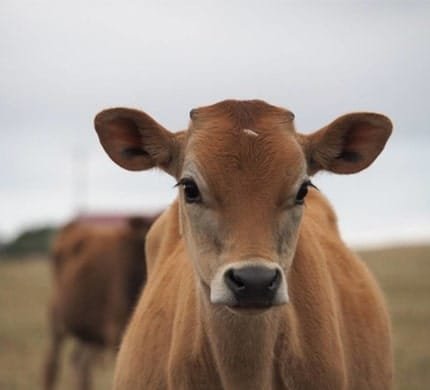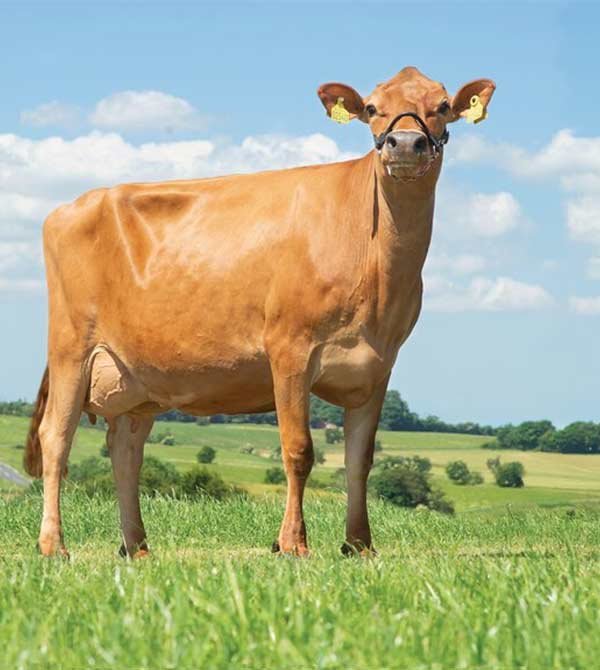Bengali Cow
- Temperature:Around 101.5 degrees Fahrenheit
- Milk:Average fat content of 5.23%
- Food:Green grass, legumes
- Pregnancy:Around 9 months
- Nationality:Bangladesh

General Information
Bengali cows, also known as Bangladeshi cows, are a breed of cattle that are primarily found in the Bengal region of South Asia, which includes Bangladesh and the Indian state of West Bengal. These cows are medium to large in size and are primarily used for milk production. They are generally a hardy breed and can thrive in hot and humid climates.
Bengali cows have a distinctive appearance, with a hump on their shoulders and a dewlap (a fold of skin under the chin) that hangs down. They are typically light brown or black in color, and their horns are medium to long in length and curve upwards.
The milk produced by Bengali cows is high in fat and protein, making it a popular choice for dairy products such as ghee (clarified butter), yoghurt, and cheese. In addition to their milk production, Bengali cows are also used for plowing fields and transportation.
Overall, Bengali cows are an important part of the agricultural and cultural landscape of South Asia, providing a vital source of nutrition and livelihood for many people in the region.
Where we find this cow to buy?
Bengali cows are native to the Indian subcontinent and are commonly found in Bangladesh and the Indian states of West Bengal, Bihar, and Orissa. If you are looking to buy a Bengali cow, you may be able to find them for sale through local livestock markets or breeders in these areas.
Alternatively, you can also search online for breeders or sellers of Bengali cows. However, it is important to ensure that the seller is reputable and that the cow is healthy and meets your specific needs and requirements.
It is also important to comply with local regulations related to the sale and transportation of livestock. Working with a veterinarian or animal health specialist can help to ensure that the cow is healthy and appropriate for your needs.

How to increase milk production in Bengali Cow?
Here are some ways to increase milk production in Bengali cows:
01
A well-balanced diet is essential for milk production in Bengali cows. The diet should include high-quality forage, concentrates, and mineral supplements to meet the cow’s nutrient requirements.
02
Effective milking management practices can help to increase milk production in Bengali cows. This includes milking cows regularly and consistently, ensuring proper milking technique, and maintaining clean and hygienic milking equipment.
03
Selecting high-quality bulls and cows for breeding can lead to offspring with increased milk production potential. Breeding programs should focus on selecting for high milk production and other desirable traits.
04
Proper health management practices can help to prevent and treat diseases that can impact milk production, such as mastitis or other infections. This includes regular health checks, vaccination programs, and prompt treatment of illnesses or injuries.
Medicine
The use of medicines for Bengali cows should be done under the guidance and supervision of a veterinarian or animal health specialist. Here are some common types of medicines that may be used for Bengali cows:
01
AntibioticsAntibiotics may be used to treat bacterial infections such as mastitis, pneumonia, or metritis. It is important to use antibiotics only as prescribed and to follow proper withdrawal times to avoid antibiotic residues in milk or meat.
02
AnthelminticsAnthelmintics are used to treat parasitic infections such as roundworms, tapeworms, or liver flukes. Proper dosing and timing of anthelmintic treatments are important to ensure their effectiveness and prevent the development of drug resistance.
03
Anti-inflammatory DrugsAnti-inflammatory drugs may be used to treat conditions such as arthritis or lameness. They should be used with caution and only under veterinary guidance to avoid potential side effects.
04
HormonesHormonal treatments may be used to synchronize estrus, induce ovulation, or treat reproductive disorders. Their use should be carefully monitored to avoid negative impacts on cow health or fertility.
Pregnancy
The gestation period of a Bengali cow is around 9 months, similar to most other breeds of cattle. Here are some key points related to the pregnancy of Bengali cows:
After calving, Bengali cows should be given proper post-partum care, including adequate rest, nutrition, and medical attention as needed. They should also be monitored for signs of post-partum diseases such as metritis or mastitis.
During pregnancy, Bengali cows require a well-balanced diet that provides them with the necessary nutrients for the growth and development of the fetus. They should be fed with high-quality forage, concentrates, and mineral supplements to meet their nutrient requirements.
Pregnant Bengali cows require regular health checkups, including monitoring their body condition score, weight gain, and signs of illness or distress. They should also be vaccinated against common diseases and dewormed as needed.
As the end of the gestation period approaches, Bengali cows should be monitored closely for signs of labor. They should be provided with a clean, dry, and comfortable place to calve, and assistance may be needed in some cases to ensure a successful delivery.
Important!
It is important to work with a veterinarian or animal health specialist to ensure the proper care and management of pregnant Bengali cows, as this can have a significant impact on their health and the health of their offspring.
Food
The diet of Bengali cows should be well-balanced and provide them with all the necessary nutrients for good health and milk production. Here are some foods that are commonly fed to Bengali cows:
Fresh green grass, legumes, and other plants are a good source of fiber, vitamins, and minerals for Bengali cows. They should be provided with ample grazing time, or green forage should be cut and offered to them regularly.
Concentrates such as grains, oil cakes, and brans are rich in energy and protein and can be given to Bengali cows to supplement their diet. The amount and type of concentrates fed should be based on the cow’s body weight, milk production, and nutrient requirements.
Bengali cows require a range of minerals and vitamins for good health, such as calcium, phosphorus, magnesium, and vitamins A, D, and E. These can be provided through mineral supplements or by adding mineral and vitamin-rich feed ingredients to their diet.
Access to clean, fresh water is essential for Bengali cows to maintain good health and milk production. They should be provided with plenty of water throughout the day, and their water sources should be kept clean and free from contaminants.
Facts
Here are some interesting facts about Bengali cows:
Bengali cows are known for their high milk production, with some cows producing up to 10 liters of milk per day
Bengali cows are well-adapted to the hot and humid climate of Bangladesh and northeastern India, where they are primarily found.
In addition to milk production, Bengali cows are also used as draft animals in some areas, where they are valued for their strength and endurance.
The Bengali cow is listed as a threatened breed by the Food and Agriculture Organization of the United Nations due to a declining population and loss of genetic diversity.
Bengali cows are known for their ability to produce A2 milk, which contains a type of beta-casein protein that is believed to be more easily digestible than A1 beta-casein.
The Bengali cow has cultural and religious significance in the region, and is often associated with agricultural practices and the Hindu religion.